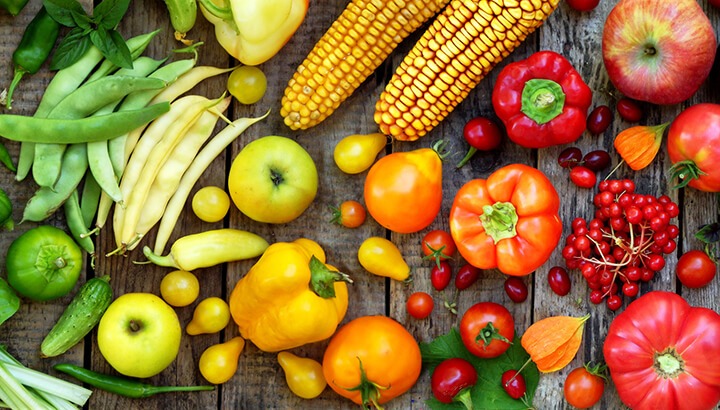Between my job as a physician and my life as a father, I think it’s fair to say that I’ve spent the better part of my adult life trying to convince people (my patients and my kids) to eat more fruits and vegetables. The benefits of fresh, whole, plant-based foods on human health has never been clearer. But we adults are up against formidable forces, especially the savvy marketers who try to make unhealthy processed foods sound as enticing as possible.
Enter my wife Amanda…who is both an amazing mother and the best naturopathic physician I know. Among her many skills and talents is a special gift for getting our three children interested in eating good, healthy food. She has a knack for finding the perfect adjective to describe to describe the veggies that are on an evening’s menu. It might be as simple as, “Are you ready for some crunchy carrots?” Or the more elaborate… Can I interest you in this delicate and delicious delicata squash or the blistered brussel sprouts? Hey, between picky kids and pushy marketers, parents need to try any technique that will give them an opening. And my wife Amanda is a pro…
As it turns out, there’s some new science to back up my wife’s approach. A new study published in JAMA Internal Medicine shows that descriptive labels do matter a great deal as far food choices go.
Here’s what you need to know about these very intriguing findings. Essentially, the researchers described the same vegetable menu items in a university cafeteria in four different ways to see how the different labels affected students food choices.
- Basic. Individual veggies are simply described in the simplest terms without any added verbiage (e.g., carrots, peas, and beans).
- Healthy/Restrictive. Veggies are labeled in healthy but restrictive terms (e.g., low carb beans or no-sugar-added beets).
- Healthy/Positive. Veggies are described in both healthy and positive terms (e.g., energy-boosting beans and smart choice citrus-rich carrots).
- Indulgent. In this instance, veggies were labeled in indulgent and mouth-watering terms (e.g., sweet-sizzling green beans, crispy shallots, and twisted-citrus carrots).
Keep in mind, the vegetables were prepared and served exactly the same way–only the names used to describe them were varied. Throughout an entire academic quarter, researchers rotated the names of the vegetable dishes and then discretely measured the volume food that was scooped out of the serving trays every day.
Interestingly, “indulgent” descriptions got the highest take rate. Students served themselves substantially more vegetables simply based on how they were described. That’s right, if you want people to eat more veggies, it’s best to describe them in the most succulent and mouth-watering terms. My wife is onto something for sure…
The authors of the study went on to suggest that “further research should assess how well the effects generalize to other settings and explore the potential of indulgent labeling to help alleviate the pervasive cultural mindset that healthy foods are not tasty.”
Here’s my takeaway from this study. Marketers and processed food giants spend millions on crafting the right words and images to sell their mostly unhealthy products. But parents and nutrition-minded individuals don’t have to roll over. With a little ingenuity, we can come up with alluring descriptions of our own. How about bodacious blueberries, succulent strawberries, and appealing apples?
Why not have some fun with a little wordplay. For instance, how about some crazy nuts, mushy mushrooms, and wrinkled dates?
Words and language can be great fun…and so can mealtimes. Make the process of naming foods and eating them both enjoyable and an adventure and you might just find things go down better. In other words, don’t forget to indulge your imagination by cooking up some mouth-watering terms for the healthy food you’d like your kids and loved ones to eat.
I’d love to hear some of the ideas you come up with.
Take good care,
Dr. Joshua Levitt









